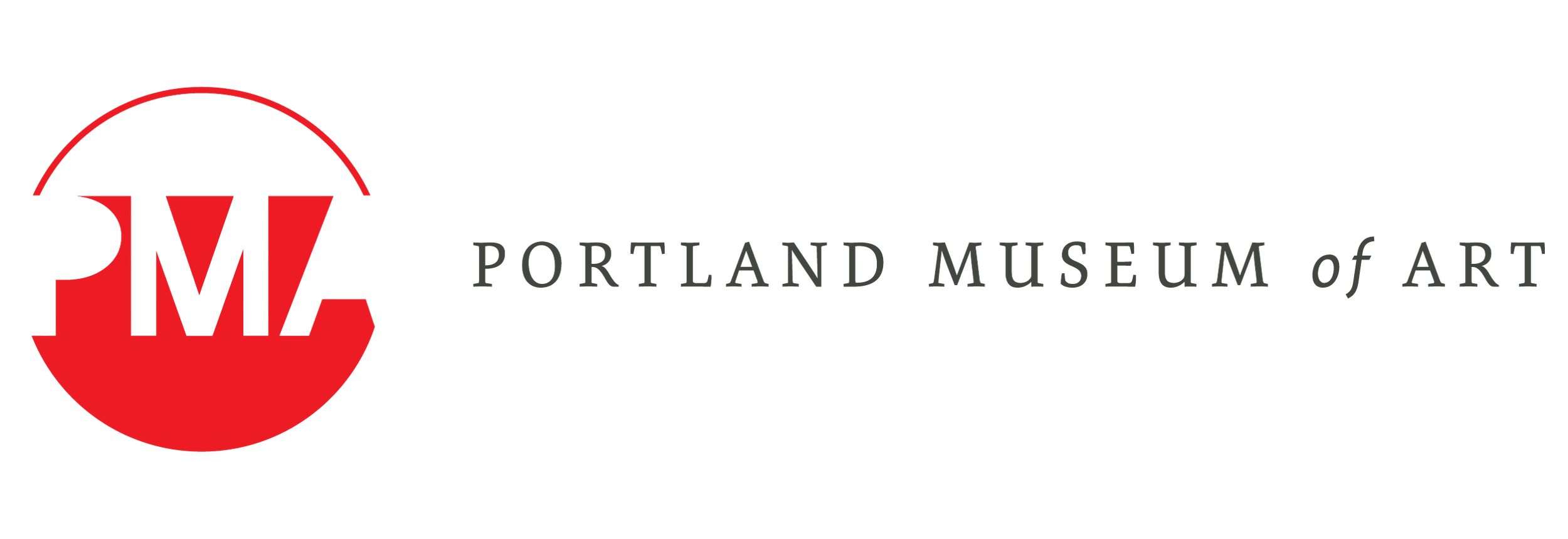Nelson Social Justice Lecture
The Leonard and Merle Nelson Social Justice Fund at the Portland Museum of Art honors artists who inform their work or their lives with themes of social justice.
Through lectures, events, and the purchase of work, this fund brings these artists and their art to the PMA, creating awareness of the social justice issues of our day as conveyed through artistic expression.
Join us for this year’s program!
2025
2024
2023
Missed it live? Watch the recording of the conversation with photographer and interdisciplinary artist Adama Delphine Fawundu from October 25, 2023.
Sea Whispers for Mami Wata at the shore of Guanahani, 2022, Adama Delphine Fawundu
Adama Delphine Fawundu is a photographer and interdisciplinary artist born in Brooklyn, NY, the ancestral space of the Lenni-Lanape. She is a descendant of the Mende, Krim, and Bubi peoples. Her distinct visual language centers around themes of indigenization and ancestral memory. Fawundu co-published the critically acclaimed book MFON: Women Photographers of the African Diaspora. Her latest artist book, When the Water Sings, is one of a five-book collection in the Plume House Prayer Series II published by Rutgers University's Shine Portrait Studio. She is an Assistant Professor of Visual Arts at Columbia University.
2022
Missed it live? Watch the recording of the conversation with artist and professor Steve Locke from May 26, 2022.
Steve Locke (b.1963) was born in Cleveland, OH and lives and works in Brooklyn, NY. Spanning painting, drawing, sculpture, and installation, Locke’s practice critically engages with the Western canon to muse on the connections between desire, identity, and violence.
2021
Missed it live? Watch the recording of the conversation between artist William T. Williams and scholar James Trainor from October 20, 2021.
Known for his process-based approaches to abstract painting, William T. Williams (b. 1942, Cross Creek, North Carolina) has cultivated a vital career centered on individual and cultural histories with which he feels a particular affinity. Conceiving a unique synthesis of personal memory and social narrative, Williams forged his own language of referential abstraction, incorporating formal motifs lifted from his biography and bestowing his works with titles referencing specific places or concepts. Primary among these influences is jazz, which Williams recognizes as a site where memory, history, and Black American tradition converge. Quilting and African textiles have also been rich sources of inspiration for Williams, who finds the abstract motifs of both mediums replete with ethnographic significance. Aware of the tendency of nonobjective art to become detached from social experience, Williams has continually sought to engage his communities in dialogues about contemporary art; these efforts include a 40-year teaching career; initiating the artist-in-residence program at The Studio Museum in Harlem; and founding the artist group Smokehouse Associates, who completed several murals in Harlem between 1968 and 1970. Williams has consistently revised, adapted, and transformed his style over the years, imbuing his oeuvre with a sprawling thematic diversity structured by recurring formal concerns.
James Trainor is an author, educator and scholar who writes about art, architecture, urbanism, and the perception of nature and the built environment in contemporary culture. His columns, essays, editorials, interviews and reviews have appeared in numerous publications including Artforum, Art in America, Bomb, Cabinet, and Metropolis - as well as Frieze magazine, where he was the US Editor and a Senior Staff Writer from 2001-2010. He is also the author of multiple monographic essays and exhibition catalogs. He is contributing an in-depth essay on the work of William T. Williams and the Smokehouse Associates collective’s involvement in creating democratized urban spaces through abstract muralism in the late 1960s/early-1970s, in a forthcoming publication of the Studio Museum in Harlem appearing in 2022. He is also the author of a forthcoming book entitled Steal This Playground: New York City and the Radical Playground Movement, 1960–1978 about revolutionary urban play experiments and the fight for equitable public space in New York in the 1960s and 1970s, to be published by Princeton Architectural Press in 2022. James was born and raised in New York City, but has been a happy resident of Portland, Maine with his wife and two kids since 2018.
2020
Misse it live? Watch the recording of the conversation between curator Jaime DeSimone and artists Carrie Moyer and Sheila Pepe, in conjunction with the exhibition Tabernacles for Trying Times from May 14, 2020.
As a sculptor and a painter, respectively, Sheila Pepe and Carrie Moyer occupy different arenas on the art-making spectrum. For two feminist artists who came of age during the second wave of feminism, contemporary cultural and political challenges demanded personal responses. Over the years, each woman has developed an abstract lexicon borne of her own identity as an artist, scholar, woman, lesbian, feminist, and activist.
“For people like us who have been historically excluded from the canon [of art history], what we bring to a topic like abstraction is our personal experience, which transforms canonical ideas about art or how abstraction is used.” -Carrie Moyer
For the 2020 Nelson Social Justice Fund Lecture, PMA Associate Curator of Contemporary Art Jaime DeSimone speaks with Carrie Moyer and Sheila Pepe to discuss how their feminist ideologies manifest in their work, as well as art and feminism’s relevancy today.
Made possible by the Leonard and Merle Nelson Social Justice Fund at the Portland Museum of Art.




